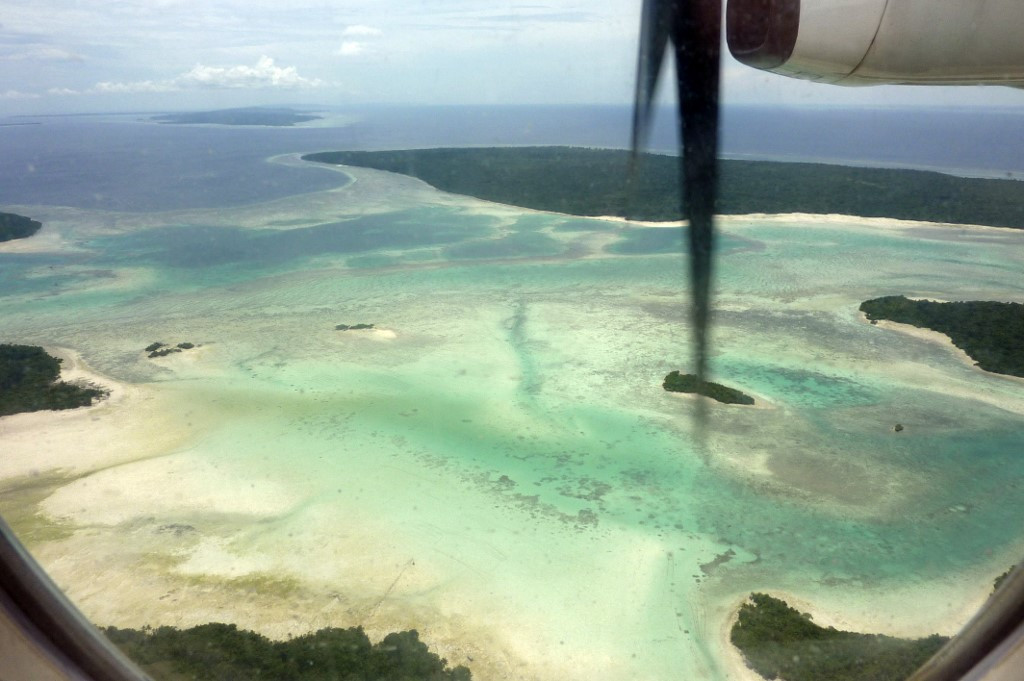Urgent Report: Fossil Fuel Exploration Endangers Coral Triangle‘s Biodiversity
A recent report reveals that fossil fuel exploration poses a severe threat to the Coral Triangle, one of the world’s most biodiverse marine areas. Coinciding with the UN’s COP16 summit on biodiversity in Colombia, this alarming analysis highlights the escalating risks faced by marine species and the communities that depend on them as the demand for oil, gas, and liquefied natural gas (LNG) increases across the Indo-Pacific region.
The Coral Triangle: A Marine Wonder
Spanning over 10 million square kilometers, the Coral Triangle—often referred to as the “Amazon of the seas”—is home to three-quarters of the world’s known coral species and six of the seven marine turtle species. It encompasses the waters of Indonesia, Malaysia, Papua New Guinea, Singapore, the Philippines, Timor-Leste, and the Solomon Islands.
Biodiversity at Risk
According to the report by monitoring organizations including Earth Insight, SkyTruth, and the Center for Energy, Ecology, and Development, the Coral Triangle serves as a crucial habitat for whales and countless fish species. The report underscores the fact that more than 120 million people rely on this region for their subsistence.
Despite its ecological importance, the area faces increasing oil and gas exploration, with over 100 offshore oil and gas blocks currently producing and another 450 blocks under exploration. "If all blocks were to go into production, about 16 percent of the Coral Triangle would be directly impacted by fossil fuel development," warns the report.
Marine Protected Areas Overlap with Exploration Blocks
One alarming finding is that oil and gas concessions overlap with tens of thousands of square kilometers of marine protected areas. The report highlights that since July 2020, satellites have detected 793 oil slicks within the Coral Triangle, primarily resulting from vessels in transit. The collective area covered by these slicks exceeds 24,000 square kilometers—almost enough to blanket the land in the Solomon Islands.
Increased Risks and Environmental Consequences
The expansion of fossil fuel development is set to increase tanker traffic, raising the risks of oil spills and further jeopardizing marine life. "Cumulatively, all slicks covered an area over 24,000 km²—nearly enough oil to cover the land in the Solomon Islands," states the report.
Experts are calling for immediate action to combat these threats. They advocate for a moratorium on oil, gas, mining, and other industrial activities in environmentally-sensitive regions of the Coral Triangle and emphasize the importance of transitioning to cleaner energy sources, bypassing the use of LNG as a transition fuel.
Global Initiatives and Local Impacts
The report coincides with the ongoing discussions at the UN biodiversity summit, which aims to evaluate progress towards the Kunming-Montreal Global Biodiversity Framework. This framework, ratified by 196 parties to the UN’s Convention on Biological Diversity, seeks to “halt and reverse” biodiversity loss by 2030. According to Greenpeace, only 8.4 percent of the global ocean is protected today, raising concerns about the feasibility of attaining the ambitious target of 30 percent protection by 2030.
Megan Randles, a policy advisor at Greenpeace, emphasizes the urgency of the situation: "At the current rate, we won’t hit 30 percent protection at sea until the next century."
A Call to Action
The report advocates for the Coral Triangle to be designated as a “particularly sensitive sea area,” necessitating specific protections from shipping activities to ensure the marine ecosystem’s survival.
Join the Discussion
The information presented in the report sheds light on a critical issue affecting not only marine biodiversity but also the livelihoods of millions who depend on these waters. Awareness and action are paramount. What do you think should be done to protect this invaluable marine resource? Share your thoughts in the comments below or join the conversation on social media.
As we advance in the fight against climate change and strive for biodiversity conservation, your voice is crucial. Explore more about the Coral Triangle and the effects of fossil fuel exploration through our related articles here.
Stay informed and engaged as we continue to cover developments surrounding biodiversity and environmental protection.
Sources:
Image:
<img src="coral_triangle_image.jpg" alt="Coral Triangle" />By effectively addressing these urgent environmental concerns and rallying community support, we can work together to ensure a sustainable future for the Coral Triangle and its invaluable ecological wealth.

